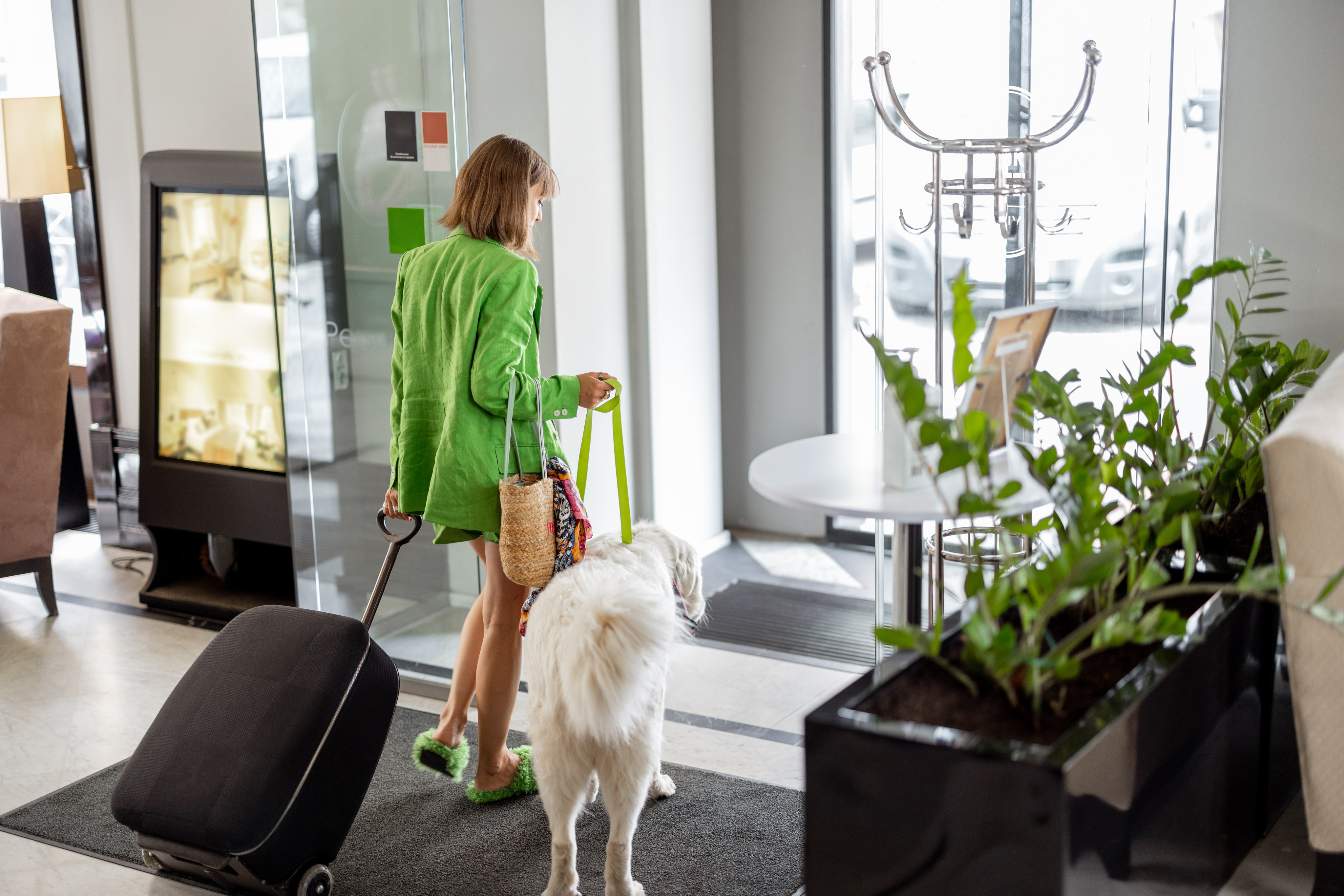
The Definitive Guide to Turning Your Hotel Into Pet-Friendly
Pets are not just animals, they are a part of the family. Many pet owners are willing to spend more on a hotel stay if it means they can bring their furry friends along.
This presents a great opportunity for hotels to attract a new customer base by offering pet-friendly accommodations.
However, turning a hotel into a pet-friendly establishment can seem daunting. From understanding regulations and requirements, to developing a pet policy and providing pet amenities, it can be hard to know where to start.
We’ll provide a comprehensive guide on how to turn your hotel into a pet-friendly paradise, so you can attract more customers and set your hotel apart from the competition.
Understand the Regulations and Requirements
One of the first steps in turning your hotel into a pet-friendly establishment is to understand the regulations and requirements in your area. This includes zoning laws, health department regulations, and insurance requirements.
Make sure to research and comply with any local laws or regulations regarding pets in hotels. For example, some cities or states may have specific requirements for pet waste disposal, or may require hotels to have certain certifications or licenses.
It's also important to check with your insurance provider to ensure that your policy covers pets on the property.
By understanding and complying with all regulations and requirements, you can ensure that your hotel is operating legally and safely for both guests and their pets.
Create a Pet Policy
A pet policy outlines the rules and regulations for guests who bring pets to your hotel. This includes information on the types of pets allowed, any size or weight restrictions, and any additional fees or deposits that may be required.
This policy should also include information on where pets are allowed in the hotel, such as designated pet-friendly rooms, common areas, and outdoor spaces.
It's important to include details on what the hotel will do in case of any damages or accidents caused by pets. Having a clear and comprehensive pet policy in place will help ensure that your guests and their pets have a positive experience, and that your hotel is protected in case of any issues.
Provide Pet Amenities
Providing pet amenities is an important way to make your hotel more appealing to pet owners and to ensure that their furry companions feel at home. Some examples of pet amenities include food and water bowls, pet beds, carriers and waste disposal bags.
You can also provide a welcome kit with items like a toy or a treat. This is a nice touch that pet owners will appreciate.
When turning your hotel into a pet-friendly establishment, it's important to not only consider dogs but also other types of pets.
One such example is cats - many cat owners will want to bring their cats on vacation with them. To accommodate these guests, it's a good idea to provide cat carriers in the pet-friendly rooms. Cat carriers provide a safe and secure way for guests to transport their cats to and from the hotel, and also a safe place for the cats to stay while in the room.
These carriers can be provided by the hotel or made available for purchase in the hotel's gift shop or lobby. By providing cat carriers, you can ensure that your guests' cats are comfortable and safe during their stay, making it more likely that cat owners will choose your hotel for their next vacation.
Offer Pet-Sitting or Dog Walking Services
Many pet owners may be hesitant to leave their pets alone in the hotel room, especially if they are going to be out for long periods of time.
By offering pet-sitting or dog-walking services, you can provide pet owners with peace of mind and create a more comfortable experience for their pets. These services can be provided by the hotel staff or by a trusted third-party pet-sitting service.
You can also offer to watch over the pet while the owner is away in their room. This can be a great way to ensure that the pet is safe and comfortable while the owner is out. Offering these kinds of services can also help to set your hotel apart from the competition and attract more pet-owning guests.
Designate Pet-Friendly Rooms
Designating specific rooms as pet-friendly is an important step in turning your hotel into a pet-friendly establishment. Not all guests are comfortable sharing a space with pets, so it's important to have designated pet-friendly rooms that are separate from the regular guest rooms.
These rooms should be equipped with hardwood or tile flooring for easy cleaning, as well as extra linens and towels for any accidents. It's a good idea to have air purifiers or deodorizers in these rooms to help keep them smelling fresh.
If possible, place these rooms away from regular guest rooms to minimize noise disturbance.
By having designated pet-friendly rooms, you can ensure that your guests and their pets have a comfortable and pleasant experience while also accommodating your regular guest rooms pet-free.
Provide Dog Walking Maps
Providing dog-walking maps is a great way to make your hotel more appealing to pet owners and to ensure that their furry companions have a pleasant experience.
A map of the local area that highlights pet-friendly routes, parks, and other places of interest for dog owners can be a great resource for guests who want to explore the area with their pets. This map can include information on nearby dog parks, pet-friendly hiking trails, and even pet-friendly restaurants and cafes.
Having this information readily available for guests can make it easier for them to plan their activities and make the most of their time with their pets.
Creating a map like this can help to promote local pet-friendly businesses, making it a win-win for both hotel and the community.
Market Your Hotel as Pet-Friendly
Once your hotel has officially become pet-friendly, it's important to market it as such. This includes updating your hotel website, social media profiles, and advertising materials to reflect the change.
Use keywords such as "pet-friendly" and "dog-friendly" in your online listing to make sure that pet owners can easily find your hotel when searching for accommodations. You can create a dedicated page on your website with information about your pet policy and amenities, as well as photos of happy pets enjoying their stay at your hotel.
Consider reaching out to pet-related blogs, websites or social media influencers to showcase your hotel as a pet-friendly destination. By effectively marketing your hotel as a pet-friendly establishment, you can attract more customers who are looking for accommodations for them and their furry friends.
Train Your Staff
Training your staff is an important step in turning your hotel into a pet-friendly establishment. Your staff should be trained on how to interact with guests and their pets, as well as how to handle any issues that may arise.
This includes knowledge of proper pet etiquette, such as asking before petting a dog and avoiding loud noises or sudden movements.
It's important for staff to be familiar with the hotel's pet policy and to be able to provide guests with information about pet-friendly amenities and nearby pet-friendly locations.
Staff should be trained on how to handle any accidents or damages caused by pets and how to deal with guests who may have allergies or aversions to pets.
By training your staff on how to interact with pets and their owners, you can ensure that your guests and their pets have a positive experience, and that any issues are handled in a professional and efficient manner.
Conclusion
Turning your hotel into a pet-friendly establishment can be a great way to attract a new customer base and set your hotel apart from the competition.
By understanding and complying with regulations and requirements, developing a pet policy, designating pet-friendly rooms, providing pet amenities, marketing your hotel as pet-friendly, training your staff, and offering services like pet-sitting or dog-walking, you can create a welcoming and comfortable environment for guests and their pets.
By following these steps, you can ensure that your guests and their pets have a positive and memorable experience at your hotel, and that your hotel is operating legally and safely.
In today's world where many pet owners consider their pets as family, offering pet-friendly accommodations can be a key differentiator that can help hotels to stand out in a crowded market.













